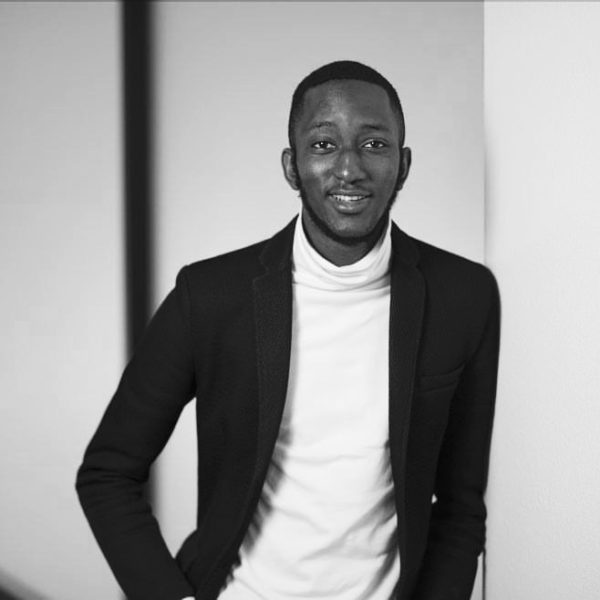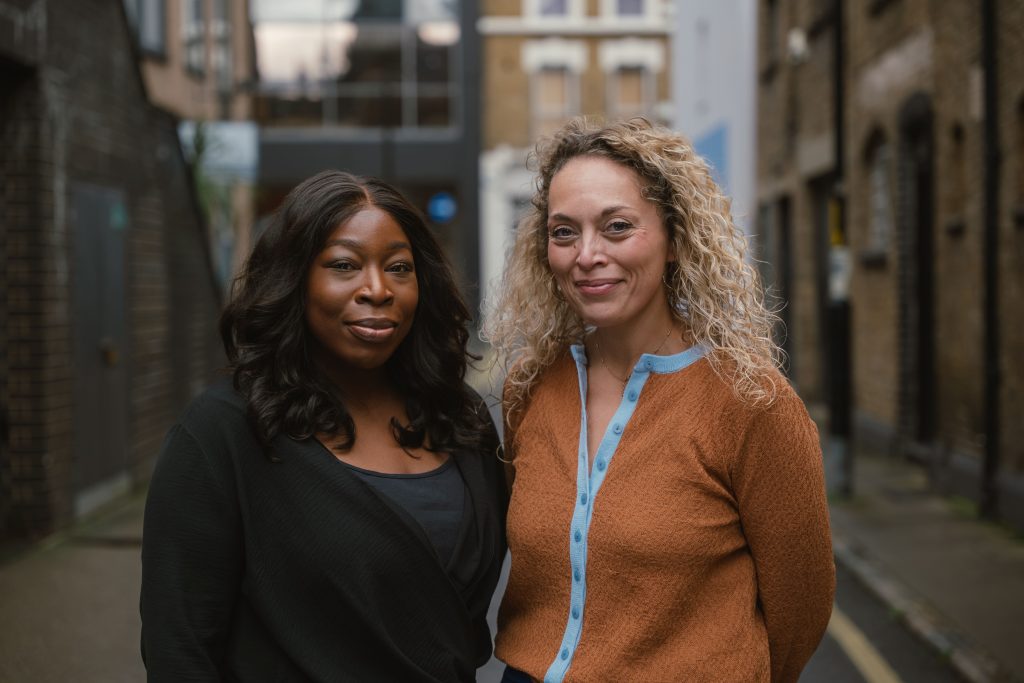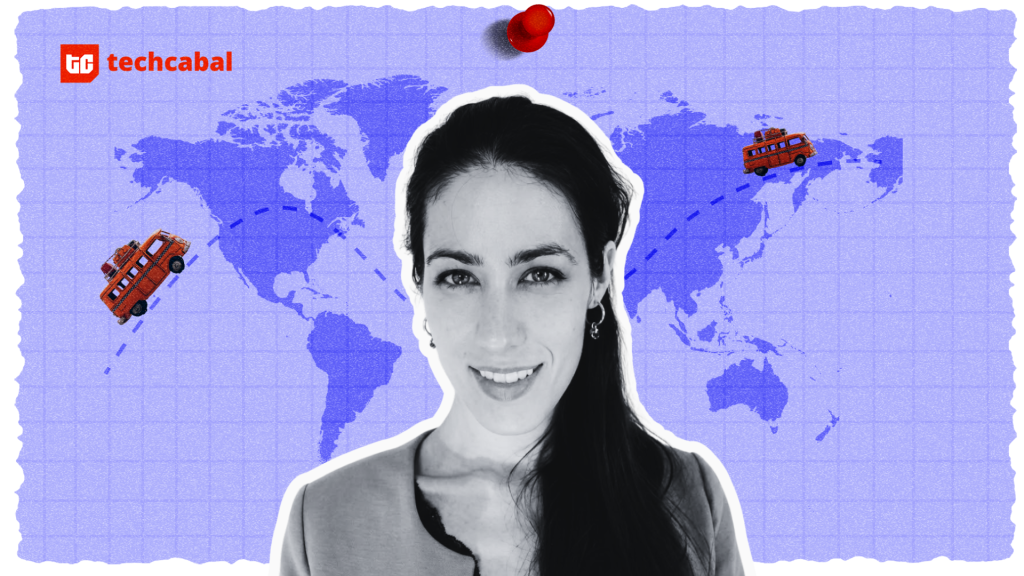Introduction
One way of describing Sani Yusuf is that he’s one of those people that can talk to anyone at any time — with a smile. You know the type that seems to make friends with the same ease that some people pick up fluff on their jackets. That’s him. And it was no different when I first met him at a BTNG* event — in no time we were chatting like old friends.
But Sani is not just another ‘Mr.Happy’, he happens to be the founder of Haibrid a development outfit and also well-known speaker and teacher. We met at Renaissance Hotel Kings Cross and below is an edited summary of our discussion. Enjoy!
Papa: Who is Sani Yusuf?
Sani: I’m a young Nigerian who happens to be passionate about IT. A lot of what I do relates to tech and even though I’ve been focused on this path for a long time now, I will say I’m just trying to find my way and enjoying the journey doing so.
Papa: How did you get into Tech?
Sani: It feels like I’ve been in IT pretty much my whole life. Back in 2001, I was lucky enough to get a Quranic graduation. Naturally, my family were excited and showed up to celebrate with me. Some people gave me money, some gave me clothes and all sorts. However, my uncle who I had always regarded as the extravagant ‘rich uncle’ got me a computer. And that’s where it all started.
Papa: That must have been exciting for a young Sani?
Sani: Absolutely! I can remember everything about that ‘gift’. It was an HP 1000 Deskjet printer, Hyundai CPU, EMachines Monitor & Zenon UPS, Windows Millennium edition. I was 8 or 9 years old at the time, but I was thrown in this world and I started teaching myself how to use the computer. At this point, I didn’t even have an internet connection. Just messing with what I could do and learn how things work. Actually, my first hack was figuring how to start the computer without the loud windows start up sound coming up. The sound was alerting my siblings (which I didn’t like for obvious reasons) and I felt good about myself that I ‘discovered’ how to do so.
By 2007, things had gotten serious and I co-founded my first startup called Nuclear Mix which rebranded to Nuclear Remix.
I grew up in Festac Town and as you might be aware, Festac is a very creative city which meant I got to hang out with to a lot of creative people. It turns out that the ‘creative people’ happen to need exposure. In this case, exposure means you had musicians, comedians, MCs, DJs etc. with the same desire of getting their work to a wider audience. That’s what Nuclear Remix set out to solve.
Our approach was to go deep and bring out the artist. We were thinking lifestyle, 360 brand, and not just songs. So we might interview people and help them with exposure.
Papa: Sounds like you had a lot of fun, how did this morph into Haibrid and who you are today?
Sani: After I moved to the U.K in 2010, I had to give Nuclear Remix up. I came to study at Brunei University and during my studies; I got my placement at Anritsu & later worked for Huddlebuy in my final year. It turned out that they needed some work done on a hybrid application and I said — ‘hey I could do it.
Much later on, I realized that a lot of people had similar needs and would pay a lot of money for it. I decided to fulfill that need. Of course I couldn’t get hybrid.com and the next available was haibrid.com
Papa: And you haven’t looked back since?
Sani: No, it’s been an amazing journey. A lot of fortuitous events also conspired to make it even more certain that I’ve chosen the right path. For instance, I was on a Tier 4 visa when I came for my studies. Then I started Haibrid when I moved to the Tier 1 graduate entrepreneur visa. But I luckily got timely details about the Tier 1 exceptional talent visa which fully allows me to run my company, employ others and work with a selection of clients on amazing projects.
There’s an interesting backstory to my Tier 1 exceptional talent visa which all started when someone followed me on Twitter, and I randomly checked her profile. I noticed that Antonia’s background display picture had her as the ‘face’ of Tier 1 exceptional talent UK. I reached out and asked ‘what’s the story behind this’. Antonia was very helpful, she sent me details and offered to help me with information about the process. Coincidentally, even though we were both based in the U.K, we met in Copenhagen Denmark where I happened to be in living a talk at some event and she was on holiday. It turned out to be the most productive ‘checking someone’s profile’ moment for me.
Papa: It’s very illuminating for you to touch on your visa journey because a lot of immigrants are sometimes unaware of these programs. Moving on slightly, I heard you speak at the BTNG event and you spoke about a ‘new’ startup you were working on — can you tell me more about it?
Sani: Certainly, it’s called UI School. My partner Nnenna John who is an IT professional based in the U.S is the brains behind it. It’s her original baby and I decided to come on board as our goals aligned. I met Nene on FB via the Silicon African FB group and we had similar interests around learning and education, and UI School is the result of our discussions.
The thought behind UI school is how to help semi-skilled people move up to the next level. There is a lot of materials out there but there’s a gap with bringing it all together that makes sense in a practical way.
UI school is aiming to bring all those elements and at the end of 4 weeks, you will be able to build a standard application.
Papa: What makes this different from learning on Youtube or joining the likes of Treehouse, Lynda, Udemy, etc.
Sani: You’re right that there are quite a lot of resources out there. For instance, if you desire to learn Angular, there are many sites that you can get information from. However, we’re not going after new beginners or people seeking knowledge. Instead, if you wanted practical knowledge which will enable you to complete a project e.g. app from start to finish, then UI school is for you. We cover everything that you need to know in a step by step and logical manner stuff like wireframing, data models, how to implement server setup, using angular firebase, etc. till you get to your end result — your own functional product.
Papa: Sounds amazing, what’s your motivation for working on UI school. Is it in conflict with Haibrid or more of your baby now?
Sani: I love to teach people. I like to share. My philosophy is that by sharing, I learn better, and ultimately, become better at what I know. And learning and getting better is a core part of Haibrid. The UI school nicely fits into this as well so I don’t see or perceive any conflict.
Papa: It’s no exaggeration to say you’re a veteran — what are the most important lessons you wished you knew earlier
Sani: I’m no veteran but then I would say I’ve learned the following 3 lessons;
Patience. Do not overestimate your ability, but don’t underestimate how ‘improved’ you will become over time.
Focus on getting better. That’s the best way — you have to find your own path. By all means, you have to look at people as inspiration, however, the focus should be on improving yourself.Do not focus on getting better than the people around you but instead become better than yourself.
And finally, consistency pays in the long term. Predictability is the best thing you can give yourself and everyone around you. Look at football, sometimes the ‘boring’ team is the one everyone knows will win. Seek to be boring.
All of the above can be summarized under that famous saying goes “Do not fear the man that’s practiced 1000 kicks, fear the man that’s practiced 1 kick 1000 times”.
Papa: Okay — let’s both agree you’re not a veteran but you do a lot of developer evangelizing, attending conferences etc. It’s safe to say you have a brand. What’s the best way for a young developer who’s looking to do the same?
Sani: To build your developer brand, you should first seek to be helpful. I was active in the community finding ways to contribute. It doesn’t have to be something big or elaborate — stuff like answering questions on forums, contributing to open source projects, volunteering to help out at events etc.
The simple stuff that a lot of people under-look or frankly don’t want to do are exactly the ways you can build your brand.
To me building a brand is being known to be helpful and knowledgeable. Helping is the easiest way to get started.
Being knowledgeable is slightly different because a lot of people always think ‘how do I become an expert’ whereas the easiest way to become one is to share what you know. Write technical articles — don’t mind if you think ‘everyone knows this already’ — trust me, that’s always never the case. Offer to teach people, look for ways to demonstrate the ‘little’ you know now. Doing so is the best way to become an ‘expert’.
I got my first chance to speak at an event through a combination of luck and being helpful. I was at an event and while helping out, a lady in my group happened to be one of the organisers. She casually said ‘we should get you back to speak to us next year’ as they felt they knew what I was saying. Come the next year, I was on stage at Phone gap.eu 2015. It seems that everything I’ve done prior to that prepared me for that opportunity.
Papa: You went on an extended trip to Nigeria, what would you say were your overall impressions
Sani: I thought it was mission over accomplished! It felt like I went out to find silver, but didn’t find silver but instead struck gold. While it’s true that there were a few business objectives that I didn’t quite achieve, I gained a lot in the connection and relationships that I formed.
The day to day meeting people, living the realities — I traveled to places I wouldn’t have been, I got to eat food I haven’t eaten. I came back a better person. I planned on spending 3 months and ended up spending 8 months.
Papa: Finally, where would you love to leave an impact or legacy?
Sani: I wish I can assist young Africans on their journey to becoming world class developers. To be able to empower my 10-year old self, have access to right information and sufficient belief in my ability to effect change.















